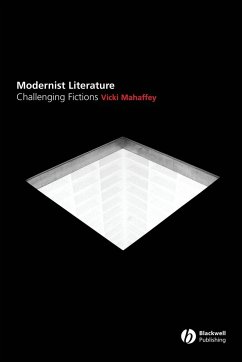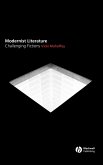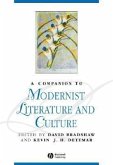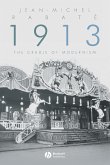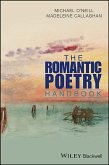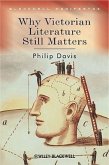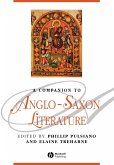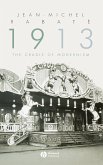"Challenging Fiction" is a double entendre. This unusual book argues that modernist fiction is not only difficult (or challenging) to read, it also provokes readers to challenge the fictions that they live by. To read modernist literature in a way that unlocks its humor, its discomfiting insights, and its strong emotional undercurrents, a reader must be both receptive and resistant to the author's perspective, actively challenging it with his or her own experience, knowledge, and sensibilities. Using writers as diverse as Sir Arthur Conan Doyle, James Joyce, Virginia Woolf, T. S. Eliot, Djuna Barnes, Oscar Wilde, and Jean Rhys, this book demonstrates that the rewards of "challenging fiction" are considerable, and unexpected.
Hinweis: Dieser Artikel kann nur an eine deutsche Lieferadresse ausgeliefert werden.
Hinweis: Dieser Artikel kann nur an eine deutsche Lieferadresse ausgeliefert werden.
"Ambitiously diverse and unsettling, a book that respondsprovocatively to the challenges it poses."
--David Bradshaw, University of Oxford
"In this sharp, thoughtful and clearly-written book, modernismis not simply a descriptive category pigeon-holing a literaryperiod; it is made both more problematic (as when its ending islinked with the holocaust) and empowering. Boldly redefining thefield, Mahaffey throws a truly original light on the social,political and ethical relevance of main modernist 'chronicles ofdisorder,' showing convincingly how they challenge repressiveauthorities as well as the reader's ingrained passivity."
--Jean-Michel Rabaté, University of Pennsylvania
"This intelligent, strongly argued book reconceives the term'modernist' to mean modern literature that challenges the readerbecause of its originality, complexity, obscurity, or transgressivenature." (Choice)
--David Bradshaw, University of Oxford
"In this sharp, thoughtful and clearly-written book, modernismis not simply a descriptive category pigeon-holing a literaryperiod; it is made both more problematic (as when its ending islinked with the holocaust) and empowering. Boldly redefining thefield, Mahaffey throws a truly original light on the social,political and ethical relevance of main modernist 'chronicles ofdisorder,' showing convincingly how they challenge repressiveauthorities as well as the reader's ingrained passivity."
--Jean-Michel Rabaté, University of Pennsylvania
"This intelligent, strongly argued book reconceives the term'modernist' to mean modern literature that challenges the readerbecause of its originality, complexity, obscurity, or transgressivenature." (Choice)

